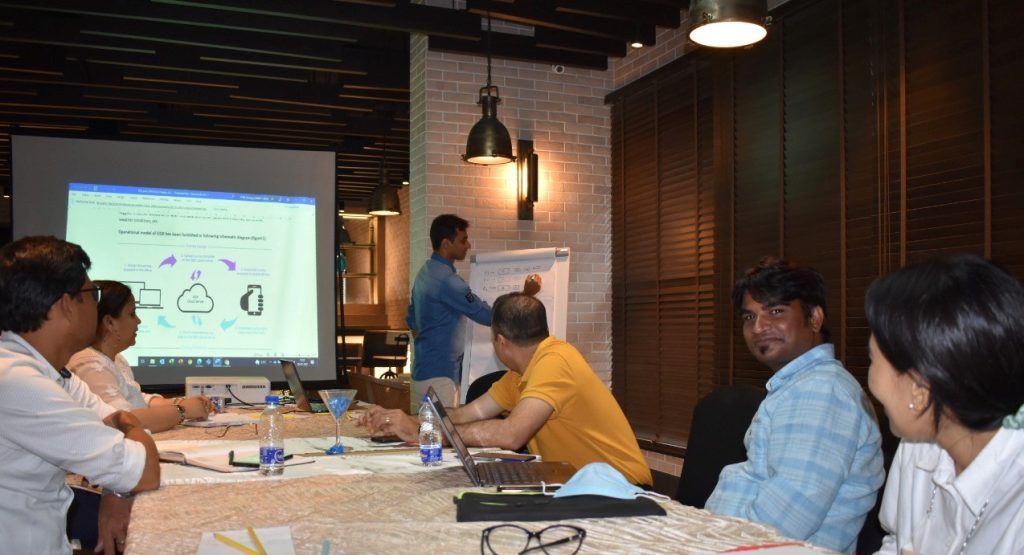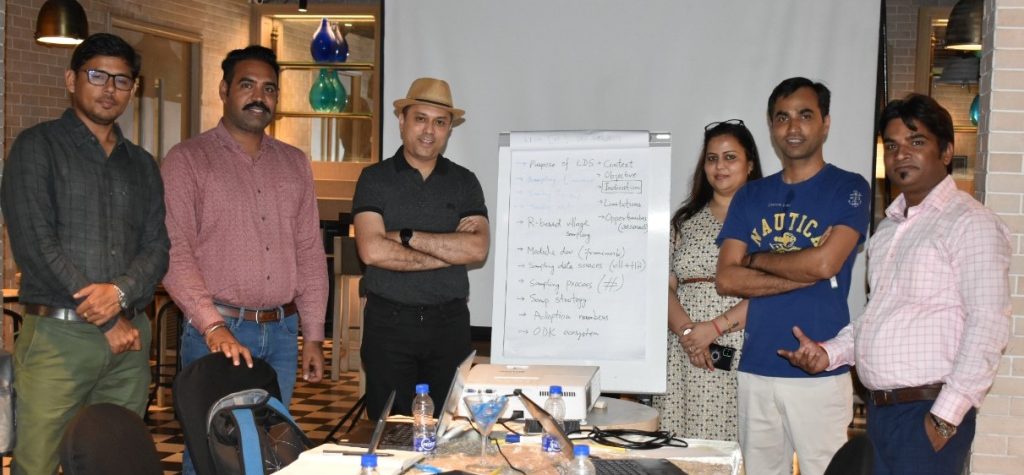Training of CSISA trainers for technically backstopping forthcoming landscape diagnostic survey (LDS)
A Training of Trainers (ToT) workshop for CSISA team members on LDS deployment was conducted by master trainers of CSISA. The new pool of CSISA’s master trainers will support forthcoming LDS by KVKs in the future. Madhulika Singh, Wasim Iftikar, Pardeep Sagwal, Umesh Yadav, and Nima Chodon participated in the training held on 28-30 August in Kolkata.

The two-day training was led by CSISA’s Monitoring, Evaluation & Learning (MEL) specialists Anurag Ajay and Arindam Samaddar, who explained the workshop’s relevance, need, and expected outcomes. The trainers discussed all aspects of LDS (background, methods, structure, digital tools, questionnaire, sampling, resource materials.) with the participants in a very interactive and hands-on approach.
On day one, participants were exposed to the ‘why’ and ‘what’ of LDS. Anurag explained the purpose and scope of CSISA’s LDS work while stressing that LDS data provides a prognosis that can form the foundation for further analysis or study by scientists/institutes. He also informed that LDS, at best, is representative data of prevailing conditions and practices of select areas/geographies and not the ultimate figures.
Arindam spoke about the significance and importance of LDS by CSISA – large-scale consistent data, real-time evidence generation of prevailing cropping practices and yield, including capacity building of national systems (ICAR Extension members).
Day two was dedicated to methodology, ‘how’, and ‘where’ of LDS – understanding systems and processes for LDS deployment, emphasis on random sampling methods, and the specifics of the probability-proportionate-to-size (PPS) sampling approach. A practical session was held on random sampling approaches for selecting farmers within a village, manually or with the R script (automated). Another session focused on Open Data Kit (ODK)ecosystem – Build, Collect and Aggregate interaction. Participants were taught preliminary programming knowledge of ODK and server management aspects. They were exposed to specifics of the LDS server hosted on IASRI (Indian Agricultural Statistics Research Institute), New Delhi.

Participants expressed confidence with the exposure to LDS module development and methodology to carry forward in their training to KVK staff and students at Agricultural Universities engaged in rural agriculture work experience (RAWE). Further, the newly trained CSISA team will train KVKs in select districts to support upcoming LDS on pulses and oilseed crops.
